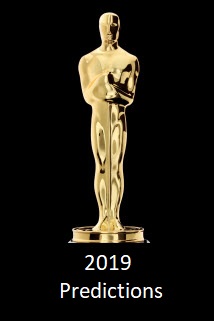Judy (2019)


Content by Tony Macklin. Originally published on September 25, 2019 @ tonymacklin.net.
What do you know about Judy Garland?
Whatever you bring to the movie Judy will affect your response to the film. Was she an entitled lush? Was she a shimmering star? Or an icon for a fervid gay audience? Or a difficult diva who made unreasonable demands? Or a troubled victim? Was she the Divine Judy or the Wretched Judy?
Probably all of the above.
A young audience likely doesn't even know who Judy Garland was. An audience that lacks empathy may be unmoved.
But whatever one brings to the film, Renee Zellweger transcends it all with a stunning performance as Judy Garland.
If you gave me a list of ten actresses who might portray Judy Garland, Renee wouldn't even be on the list. Although she is known for delivering the classic line - "You had me at 'hello'" in Jerry Maguire (1996) - and she won an Academy Award as Supporting Actress in Cold Mountain (2003), she didn't appear to have the capacity for Judy Garland. Boy, was I wrong.
Like actors Daniel Day-Lewis and Christian Bale, Renee Zellweger disappears in her character. One might assume she overplays. She doesn't - she becomes. She only "overplays" when Judy overplays. And Renee's voice is clear and powerful as she sings like Garland.
Renee captures the unique, human chords of Judy. She's a powerhouse - electric but haunted. She registers the brutal angst and the desperate outreach for happiness. But even soaked in alcohol, Renee's Judy is credible. She's intelligent, aware, na‹ve, with a perceptive sense of humor and an indomitable sense of yearning. It's a miraculous portrayal.
Since I'm in Las Vegas I like to set odds. [You can't bet on the Oscars in the U.S.] Renee Zellweger is at least 1-10 to win the Oscar as Best Actress. She's a lock.
She'll win unless she gets robbed like Judy Garland in A Star is Born (1954), when Judy was beaten for the Oscar by Grace Kelly in The Country Girl (1954). Judy Garland also lost an Oscar as Best Supporting Actress for her shattering performance in Judgment at Nuremberg (1961) when Rita Moreno won for West Side Story.
Will Judy through her persona get rebuffed again? Will Saoirse Ronan be Renee's Grace Kelly? Let's hope not.
Judy centers on Judy Garland's 5-week engagement in 1968 at a large supper club in London. There are several flashbacks to Judy - well-played by appealing Darci Shaw - as a young ing‚nue undergoing the psychological abuse and victimization by a manipulative studio star system. Louis B. Mayer (Richard Cordery) is portrayed as a haughty, money-absorbed mogul. It's an apt but easy one-dimensional portrait. The young Judy is treated as a valuable, but dispensable product.
Most of the other characters have more dimension. Jessie Buckley is effective as a Lodon aide to Judy, who has to cope with her charge's self-destructive impulses.
Underrated actor Rufus Sewell humanizes the character of Sid Luft, Judy's third husband, who has to deal with their two young children. Judy's older other daughter already has a career.
Finn Wittrock plays the personable young lover of Judy, who has sketchy, major plans for success.
Judy has two gay men who are avid fans of Judy and give her meaningful support in London. They come close to pawns, but the writing and their performances provide a likable, authentic humanity. They are played by Andy Nyman and Phil Dunster (misidentified in several reviews).
Judy is directed engagingly by Rupert Goold. The able screenwriter is Tom Edge, from a play by Peter Quilter.
They all avoid sentimentality most of the time. If the end had been directed by Ron Howard it would have closed with a simple standing ovation.
Judy concludes with a scene that is evocative and emotional. It's more true sentiment than sentimentality.
Credible sentiment is the key to the film and to Renee Zellweger's remarkable performance.
Next February, may Judy's rainbow bring gold to Renee.
